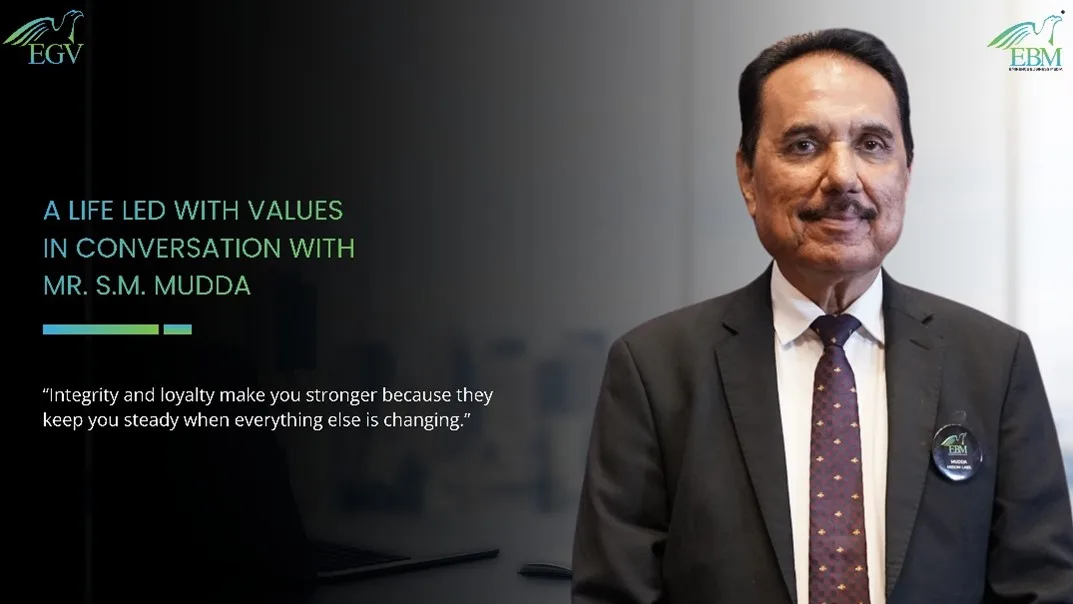
After the overwhelming response to our recent podcast with Mr. S. M. Mudda, industry veteran and thought leader in pharmaceutical quality systems, one question kept coming our way: “Can we hear more of his story?”
So here it is, an in-depth conversation that goes beyond the professional titles and accolades to explore the man behind them. From his early days in Mumbai and the influence of his father, to lessons in leadership, integrity, and lifelong learning, this interview offers a rare glimpse into the mind of someone who has not only witnessed the evolution of Indian pharma but helped shape its conscience.
In this exclusive feature, Mr. Mudda opens up about his journey, his early struggles, mentors who shaped him, and the timeless values that continue to guide him in an ever-changing world.
1. We all know you as a professional, a good leader, and a mentor, but who really is Someshwar Mudda behind the façade of a brilliant professional?
That’s a beautiful question, and perhaps the hardest one to answer. That’s a question that takes me back, all the way to my early days in Mumbai.
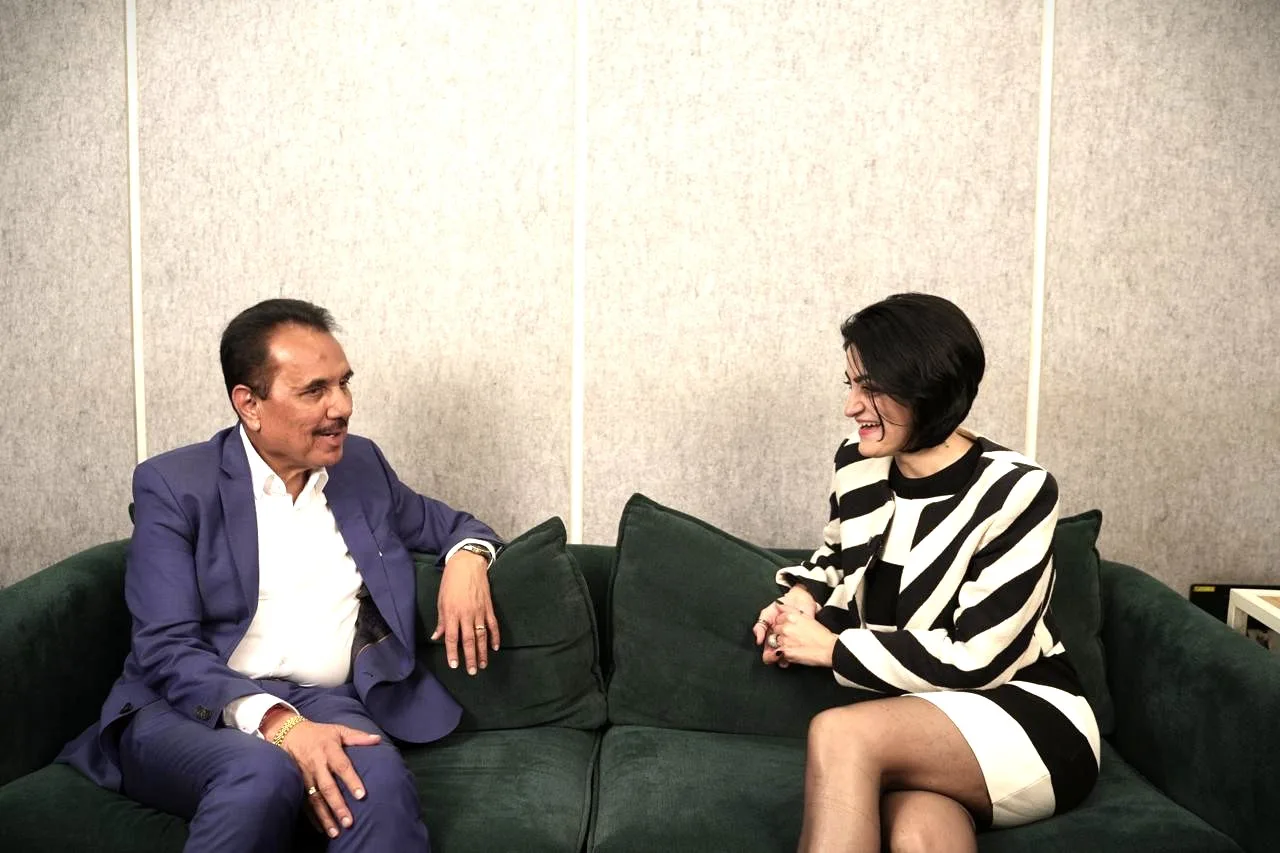
I’ve always been drawn to many facets of life, science, theatre, music, and literature, curious to learn from excellence wherever I find it. Early in life, I realised that I have no particular interest in any specific profession, because profession is not my life, life is my profession. That thought helped me embrace every experience, every person, every opportunity. And Mumbai, in its raw, generous, chaotic way, gave me the platform and spirit to live that truth.
It was the early realization, sometime in my first year in Mumbai, that this city is not just about work, but about excellence. It is the city of the most accomplished people across every field, from science to theatre, journalism to politics, medicine music.
My work may revolve around systems, compliance, and quality, but my inner compass is guided by values, faith, and human connection. Behind the professional façade, I remain a curious observer of life, someone who loves understanding people, systems, and the patterns that connect them.
I’m not someone who settles for small horizons; my inner brief has always been THINK BIG. A quote I once picked up from Reader’s Digest became my lifelong punch line, and I continue to pursue this.
So, if you ask who Someshwar Mudda really is, I’d say someone still learning from excellence in every field of life, drawing lessons from people, systems, and the spirit that connects them.
2. Growing up in a family where your father was a journalist and you had early access to literature, theatre, and music, how did that shape your worldview?
I often say that my first school of thought was my home. My father was a journalist, disciplined, observant, and deeply curious. He introduced me to books, ideas, and conversations that went far beyond academics.
The atmosphere at home naturally built my curiosity to seek knowledge from any field, to learn from elders and experts. It quietly shaped my way of thinking and helped me see things differently. That mindset later helped me expand my horizons when I came to Mumbai.
Growing up in that environment gave me a quiet sense of pride, the pride of being the son of an illustrious father. It also planted in me a belief, perhaps naïve but powerful at that age, that I was meant to do something meaningful, not just ordinary. Looking back, that belief wasn’t arrogance; it was confidence, and it kept me moving forward whenever life tested me.
That early exposure made me comfortable with people from all walks of life. It taught me to listen, to connect, and to learn from excellence wherever I found it. Over time, that curiosity became part of my personality, helping me grow not just professionally, but as a person.
Question 3. You play the harmonium and tabla, and you mentioned you appreciate theatre deeply. How has art and culture influenced your approach to leadership?
To be able to play, one needs to listen more.
Music for me has always been about listening, observing the discipline, faith, and humility of great maestros. When they practise, you see their riyaaz, their surrender to the art, and their respect for each other; they touch each other’s feet without thinking of age or position. That kind of grace teaches what true respect and lifelong learning mean.
Music, besides, is a stress-buster. It lifts your mood, clears your mind, and connects you with your inner self. Even after a long or difficult day, a few minutes with music can bring you back to balance.
Theatre, on the other hand, teaches you about life itself, not just the process of performance, but the content it reflects: history, society, ethical behaviour, and human contradictions. It helps you see how people think, how they respond to situations, and how choices reveal character.
Both theatre and music have influenced how I work with people.
They taught me to appreciate the quality of performance, to recognise excellence in even the smallest activity, whether on stage or at work, a good rhythm in any unit operation in the plant, a clear articulation by a young colleague, or simply someone doing their job with quiet pride.
Question 4. You were a gold medallist in your education, and always had an approach to life with a philosophy of “working with people rather than working for people.” How did your first job shift set your path?
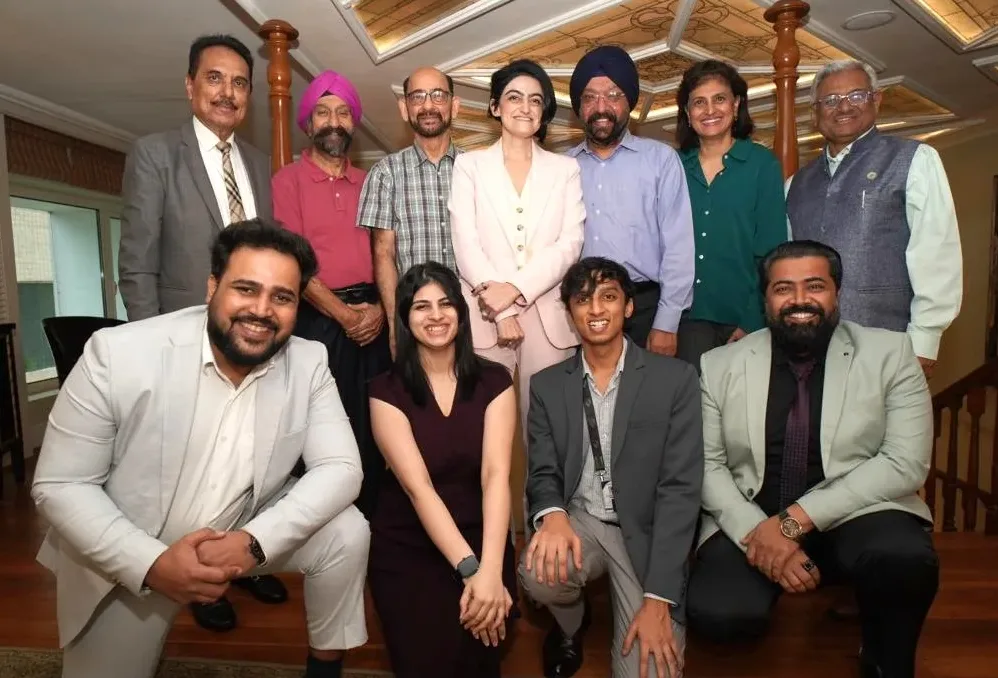
My first job was where theory met reality. I joined USV as an apprentice in injectable manufacturing, right on the shop floor. Coming out of college as a gold medallist, I thought I understood everything. Within a few weeks, I realised how little I actually knew.
That experience grounded me. I learned that success in pharma is never individual, it’s collective. You can’t run a batch alone; you have to work with people. The operators, technicians, and support staff carried wisdom that no textbook had. I listened, asked questions, and learned every day.
Looking back, that first job taught me three things that never left me: humility, respect for people’s knowledge, and the power of collaboration. Those values have guided me in every role since, whether in leadership, compliance, or systems work.
5. You struggled with English, not being a strong pursuit in the early stages of your career. How did you overcome that so fiercely, and what’s your message to young professionals facing similar barriers today? 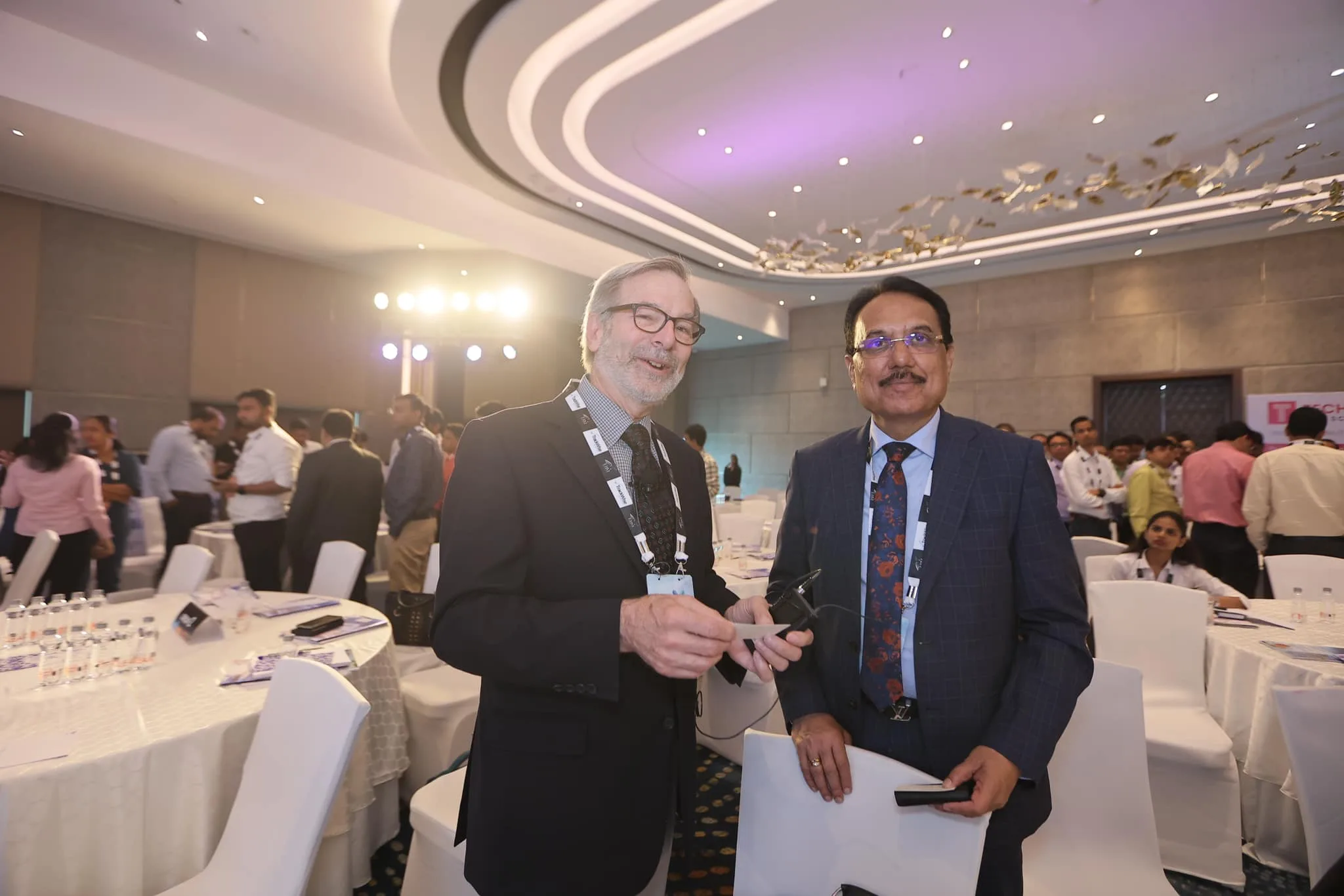
Yes, English was my biggest weakness in the beginning.
I came from a small-town school where English was taught, but not really spoken.
The first interview of my life is something I can never forget.
A leading celebrity doctor in Mumbai had kindly recommended me for a job.
I went for the interview, did my best, and later went back to his clinic to ask how it went.
He called the interviewer right there.
I didn’t understand what was being said, but I could sense from his expression that the response wasn’t kind.
He just listened quietly and finally said to the interviewer on the phone,
“I’m sorry for sending such a candidate.”
He did nothing after that.
I quietly left his clinic, walked to the Pedder Road bus stop, and stood there, dumbstruck, for nearly four hours, replaying that moment again and again.
That was when I realised my inability to speak English had closed a door, and that I had to change it myself.
From the next morning, I started learning in every way I could.
I listened to Doordarshan news, both Hindi and English, memorised sentences, read newspaper editorials and centre-page articles, and watched TV discussions. Back then, they were truly listenable.
Slowly, confidence replaced hesitation.
Looking back, that first interview taught me three things that never left me: humility, resilience, and the will to keep improving.
To young professionals today, I would say, language is just a medium, not a measure of intelligence.
Keep learning, speak without fear, and remember: clarity of thought and sincerity of intent will always matter more than fluency.
6. By 28, you were already a factory manager. What did that rapid rise teach you about responsibility and determination?
Yes, that happened quite early; I was just 28 when I took charge of building a new injectable manufacturing plant from scratch. Everything had to be created: the layout, the processes, the team, the culture.
Most people advised me to hire experienced staff, but I had already seen what that meant in the early ’80s: rigid habits, resistance to change, and trade-union pressures that left little room for improvement.
So I decided to build a new team instead.
Except for one senior QC manager, I recruited an entirely young and educated group, raw but eager to learn. We worked together day and night, installing equipment, validating processes, writing SOPs, and building systems brick by brick.
I stayed on the floor with them, guided patiently, corrected when needed, and created a sense of belonging.
Soon, the same young team was running the plant like professionals. We earned the confidence of multinational clients and passed international audits, not through experience, but through teamwork and shared commitment.
That phase taught me that leadership is not about control, it’s about creation.
7. I understand Mr. R. S. Iyer had a huge impact on your life, but I can also see how you moved from operations to quality in pharma after working with him. Did he mentor this transition?
Yes, absolutely. Mr R. S. Iyer was a quiet legend of quality systems. He had spent decades at GSK and contributed immensely to the Indian Pharmacopoeia. From him, I learned the fundamentals of quality management systems very early in my career.
He was a strict disciplinarian but a man of deep conviction. He often said, “The quality of work determines the quality of the product.” That single line captured his entire philosophy.
He believed that personal integrity was the first qualification for anyone in this industry, and that you must have the courage of conviction to support quality even when it isolates you. He would remind me that at the top, you may have to walk alone, and you must be ready to sacrifice comfort for conscience.
He mentored me closely and appreciated my systems approach. In those pre-ISO days, we built the entire Quality Assurance Manual from scratch. He taught me precision in thought, brevity in expression, and fearlessness in truth. He never bowed before power when it was wrong.
He also encouraged me to speak at various professional forums, introduced me to wider industry circles, and even co-authored a book with me. Through him, I learned not just how to build systems but how to share knowledge generously and raise the bar for others.
Anything good I have done in the field of quality, the credit truly goes to him. He demonstrated to me how, on the foundations of a strong quality system, one can produce products of the highest quality, efficiently and consistently. He didn’t just mentor my career; he shaped my conscience.
8. Integrity and loyalty have been hallmarks of your career. What do those values mean to you in today’s fast-changing corporate world?
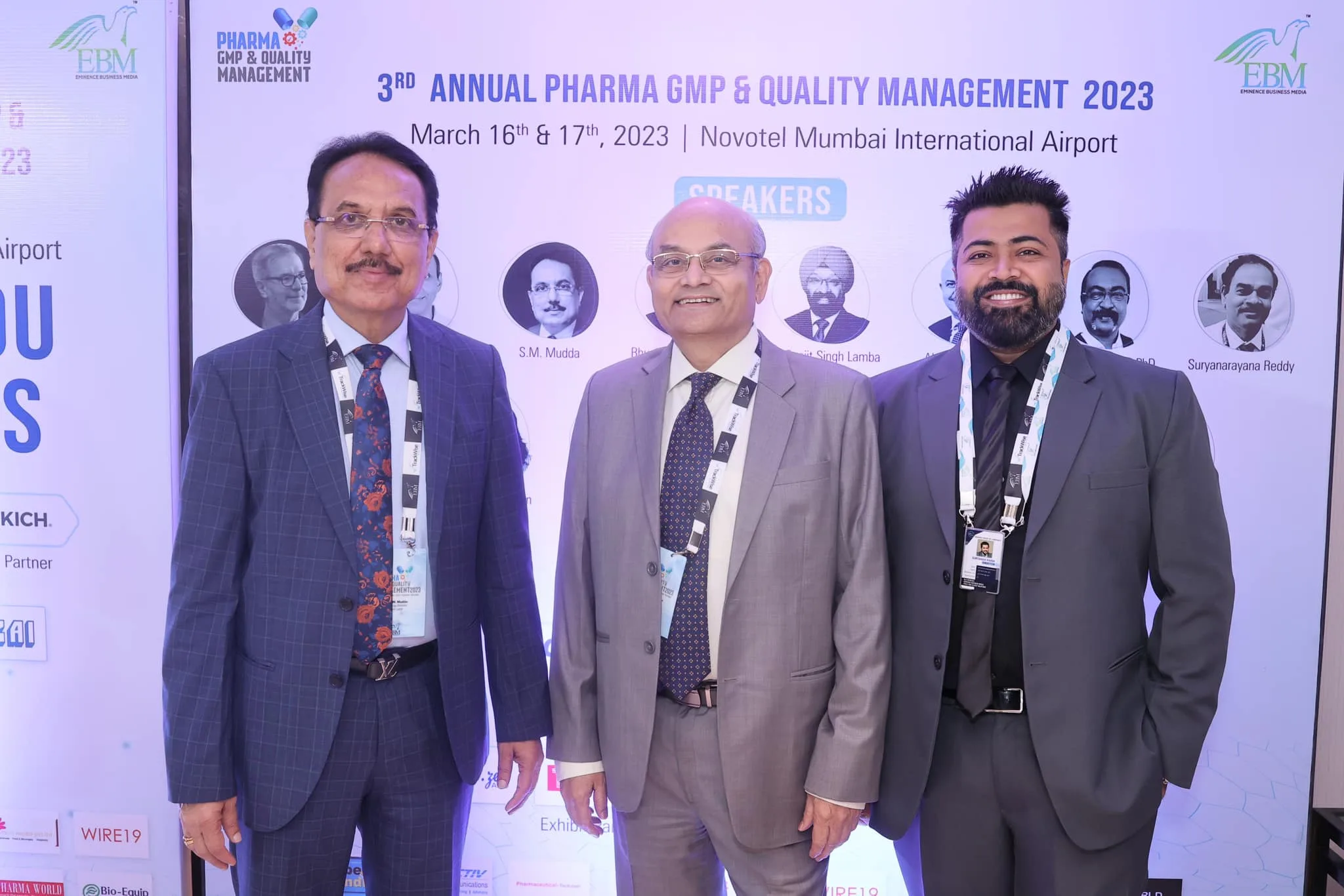
Integrity and loyalty are not old-fashioned values; they are timeless ones.
I often say honesty is words followed by action, and integrity is actions followed by words.
Integrity is doing what’s right even when it’s uncomfortable or unseen. In our industry, it defines not only personal character but also product quality and patient safety.
Loyalty, on the other hand, is not blind attachment to an organisation. It’s loyalty to purpose, to people, and to principles. When you’re loyal to a mission, you stay steady through change.
In today’s world, many live by what Stephen Covey called the personality ethic, focused on image and quick success. But true strength comes from the character ethic, acting by values, not convenience.
You can adapt to change without losing your core.
Integrity and loyalty make you stronger because they keep you steady when everything else is changing.
If I’ve stayed relevant all these years, it’s because those two values have never changed.
9. You are a passionate reader. How do you make time for it even today?
Reading has been part of my life since childhood. My father was a journalist, and that atmosphere naturally built my curiosity. During school and college holidays, I would spend entire days in libraries, reading everything I could find, from literature and philosophy to science and history. It was never forced; it was pure joy.
In my early career, that habit continued. I read books that shaped my thinking, Stephen Covey, Lee Iacocca, Peter Drucker, and many others. But as responsibilities grew, reading time became scarce. I found it hard to sit with a book for long hours.
Over the last seven or eight years, I’ve found a new way to keep learning, by listening. I listen to talks, lectures, and interviews of great thinkers on YouTube, people like Deming, Ackoff, Kahneman, Covey, and Simon Sinek. I listen repeatedly until I can absorb their meaning and relate it to my own experiences. I make small notes, reflect, and connect the ideas to what I see in my work.
That’s how I balance work time and learning time, not by separating them, but by letting learning become part of my day. I may not read as much as I once did, but I probably learn more deeply now than ever before.
These thinkers have helped me rediscover the power of reflection and systems thinking in leadership, ideas that continue to shape how I see people, purpose, and progress.
10. What’s your view on the current generation’s reading habits and the impact of information overload on critical thinking?
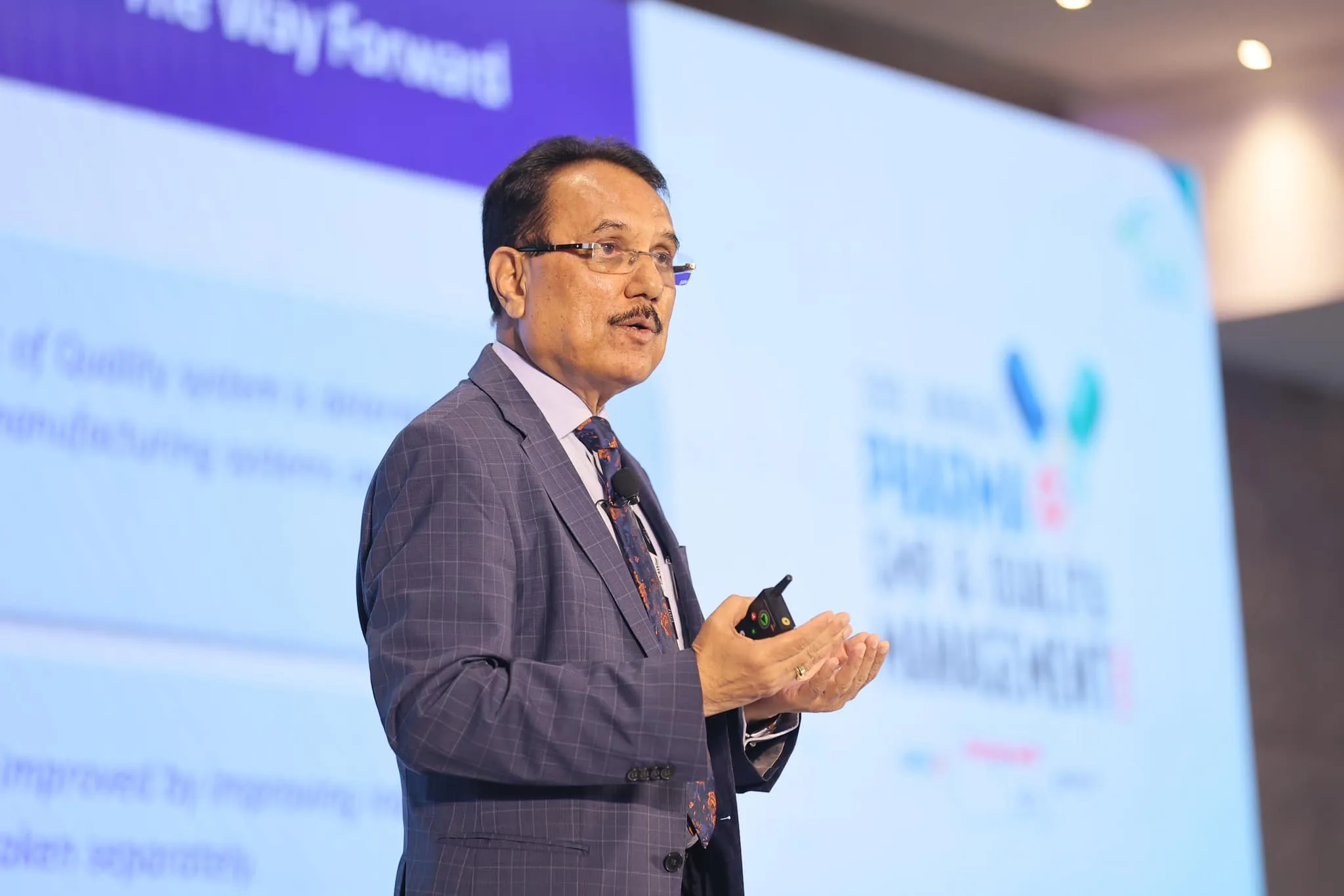
This generation has access to more information than any before it. But access is not the same as understanding. The problem today isn’t too little knowledge; it’s too much noise and too little depth.
When we were growing up, reading meant slowing down. You stayed with an idea long enough to think, question, and understand it. Today, everything is fast. Many read to collect data, not to find meaning.
Russell Ackoff explained it well: the human mind holds data, information, knowledge, understanding, and wisdom.
Data is raw. Information organizes it. Knowledge uses it. Understanding connects it. And wisdom tells us what is worth doing at all. We’ve become very good at doing things right, efficiently and quickly, but not always at doing the right things. That’s the gap between knowledge and wisdom.
Critical thinking grows from reflection, not speed. Information fills memory, but reflection builds wisdom.
So my message to young people is simple: use technology to learn faster, but slow down to think deeper.
11. You mentioned there’s “no true journalism” anymore, with anyone posting any information on social media without a background in media understanding and involvement. Could you elaborate on what you see as the risks of today’s media culture?
When I said there’s no true journalism anymore, I meant that many people now react to news instead of reporting it.
Earlier, journalism stood on three pillars: ethics, investigation, and verification. Today, information travels faster than understanding, and anyone can post or comment without context. The loudest voice often wins over the truthful one.
The real danger is that it seems opinion is slowly taking the place of truth. On social media, emotion often travels faster than evidence. When something gets shared again and again, people start believing it, even if it isn’t true.
In my father’s time, journalism was about balance and fairness. He was respected by both government and society because he never sensationalised or took sides; he focused only on facts. He taught me that journalism is not about creating noise, it’s about building trust. That’s what’s missing today, credibility.
We need to rebuild that trust between the media and the people.
Freedom of expression must always go hand in hand with responsibility in communication.
Only then can journalism return to what it was meant to be, a service to truth, not a race for attention.
12. In your eyes, what’s the difference between a boss and a leader? Can you share an example from your own journey?
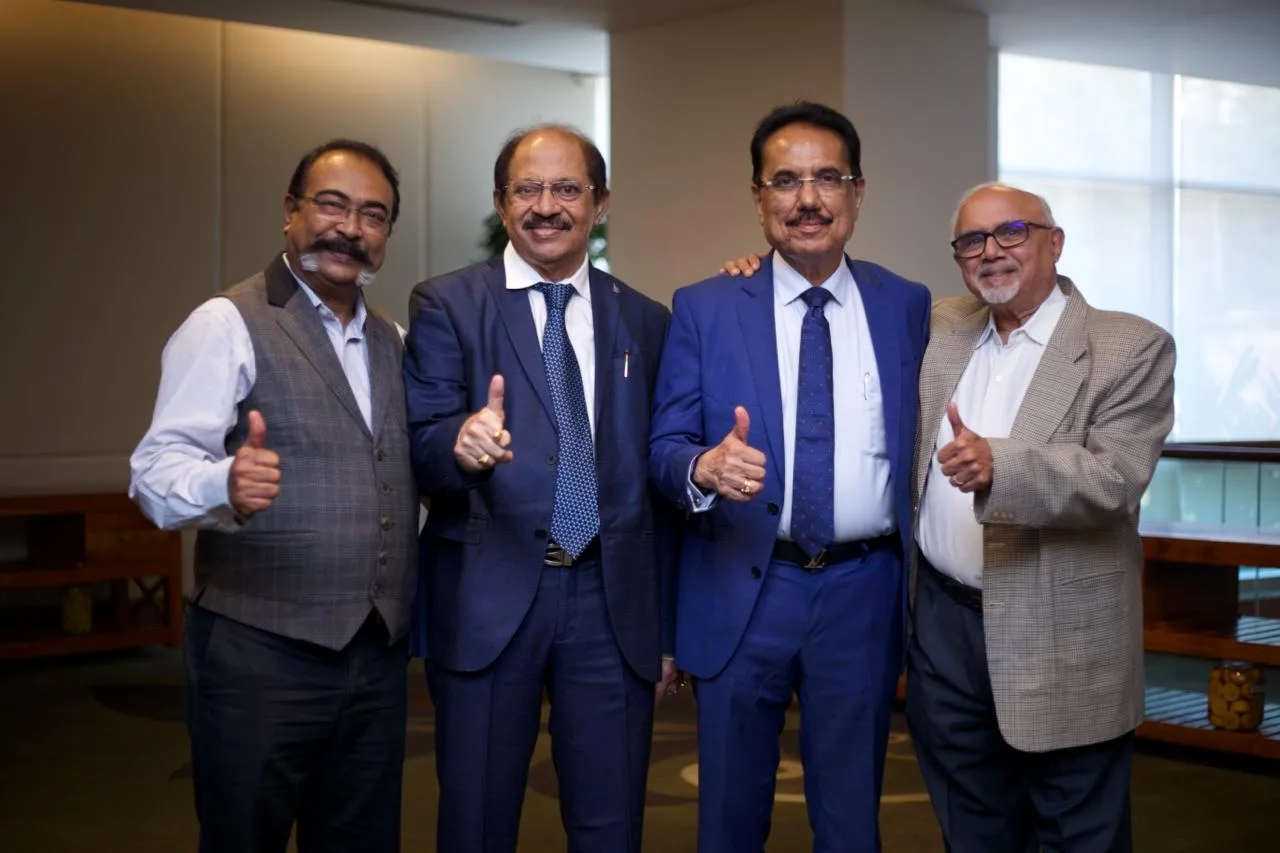
A boss focuses on control; a leader focuses on growth.
A boss manages people; a leader develops them.
Simon Sinek once said, Leadership is not about being in charge, it’s about taking care of those in your charge. That captures the essence of how I see it.
When I led teams through critical inspections, I always made it a point to stand with my people, before, during, and after the inspection. I wanted everyone, from senior managers to the youngest analysts, to feel confident and calm, no matter how demanding the situation.
One of those juniors rarely spoke to me directly, but she was always present in those meetings, quietly observing how we handled difficult questions and pressure.
Years later, I received an email from her. She wrote that she had been diagnosed with blood cancer and was preparing for a bone-marrow transplant. As she was being taken in for surgery, she said she thought of only three people: her father, her husband, and me. She wrote that she knew the success rate was just forty percent, but she was sure she would be among that forty. She said the courage to fight back, to stay calm and keep faith, came from what she had seen and learned during those inspection meetings.
She recovered and returned to lead a normal life.
That message reminded me of what leadership truly means. It’s not about authority or position. It’s about the unseen courage you help people find within themselves, sometimes without even realising it.
So for me, the difference is simple:
The boss drives results through people.
A leader achieves results with people.
13. Your family not only instilled values like reading, awareness, and integrity in you and all your siblings but also taught you kindness and compassion. I understand your father initiated and was involved in Go-rakshan (cow protection), and now your brother has dedicated his life to it. With six brothers and a strong family background, what role has family played in shaping your resilience and teamwork approach?
Family has been the foundation of everything I am.
We are six brothers, raised in a home that valued reading, awareness, and integrity, but above all, kindness and compassion. My father was a journalist, deeply respected in society, and he was also active in social work, especially Go-rakshan, or cow protection. He taught us that leadership begins with service and that values are lived, not spoken.
Each of us absorbed that in our own way. My younger brother has continued that work with complete dedication. Growing up in such an atmosphere, we learned to think beyond ourselves, to share, to support, and to stand together.
When you grow up with six brothers, you naturally learn to help each other, to manage relationships well, and to understand that sacrifice lies at the heart of any lasting bond. Those lessons have stayed with me through every phase of life, in work, in leadership, and in relationships.
Our unity has always been our strength. We’ve all worked in the same organisation for more than four decades and risen to senior leadership positions. Whenever we meet, our conversations still reflect what we learned at home, small minds talk about people, average minds talk about events, and great minds talk about ideas.
So yes, family gave me both the strength to stand firm and the humility to stand together.
14. If you could give one advice to the fellow pharma professionals looking forward to growing in their career, what would it be?
If there is one piece of advice I would offer my peers, it is this:
Move from compliance to conscience, and from practice to system.
Compliance cannot be sustained by good practices alone; it must rest on the solid foundation of a Pharmaceutical Quality System. When compliance lives in systems, it serves a purpose higher than regulation; it safeguards the patient.
Across my career, from building quality systems in Micro Labs to establishing Misom Labs as an EU-GMP release site, one truth has always held: when systems are designed with clarity, quality becomes consistent and sustainable.
Deming taught us to see problems as systemic, not personal.
Ackoff reminded us that fixing a part without understanding the whole is a design flaw.
And Robert Kegan taught us that if people do not grow in how they think, even a well-designed system eventually stops working as intended. When thinking does not evolve, systems become complicated, heavy, and rule-bound, instead of being meaningful, simple, and effective.
So my message to professionals is this: grow not just in skill, but in consciousness.
Build systems that make quality inevitable, not because anyone demands it, but because every decision ultimately touches a patient’s life.
15. If you could give one lasting piece of advice to the students stepping into this field today, what would it be?
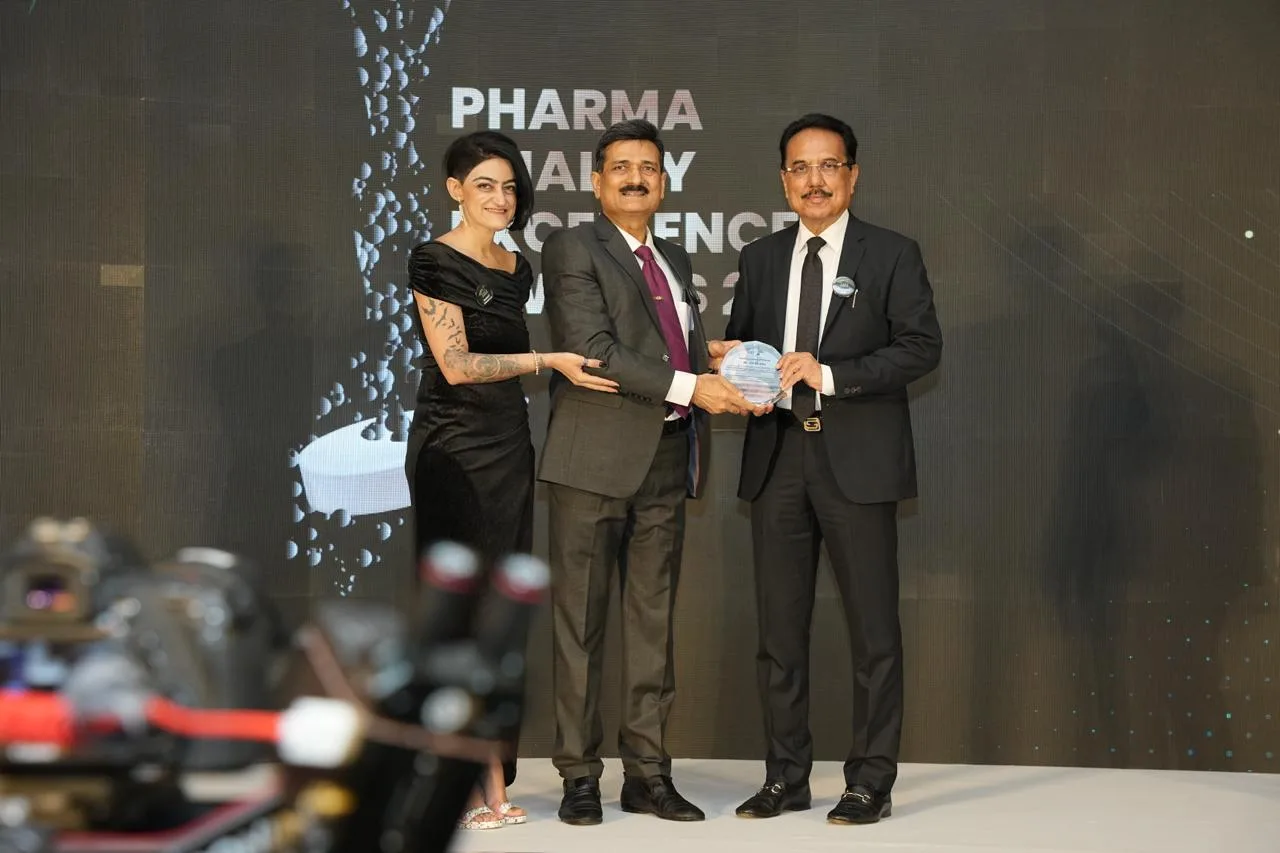
To the next generation stepping into this field, I would say:
Discipline, integrity, and curiosity will be your strongest assets, but your real strength will come from staying up to date and understanding the deeper purpose behind your work.
Pharma is evolving rapidly, with new technologies, new quality paradigms, and new expectations from society. Keep learning continuously.
Do not just follow what others do; understand why things are done. Principles are timeless, practices change.
In the long run, success will not depend on how fast you move ahead, but on how consistently you uphold truth, integrity, and professional ethics, especially when no one is watching.
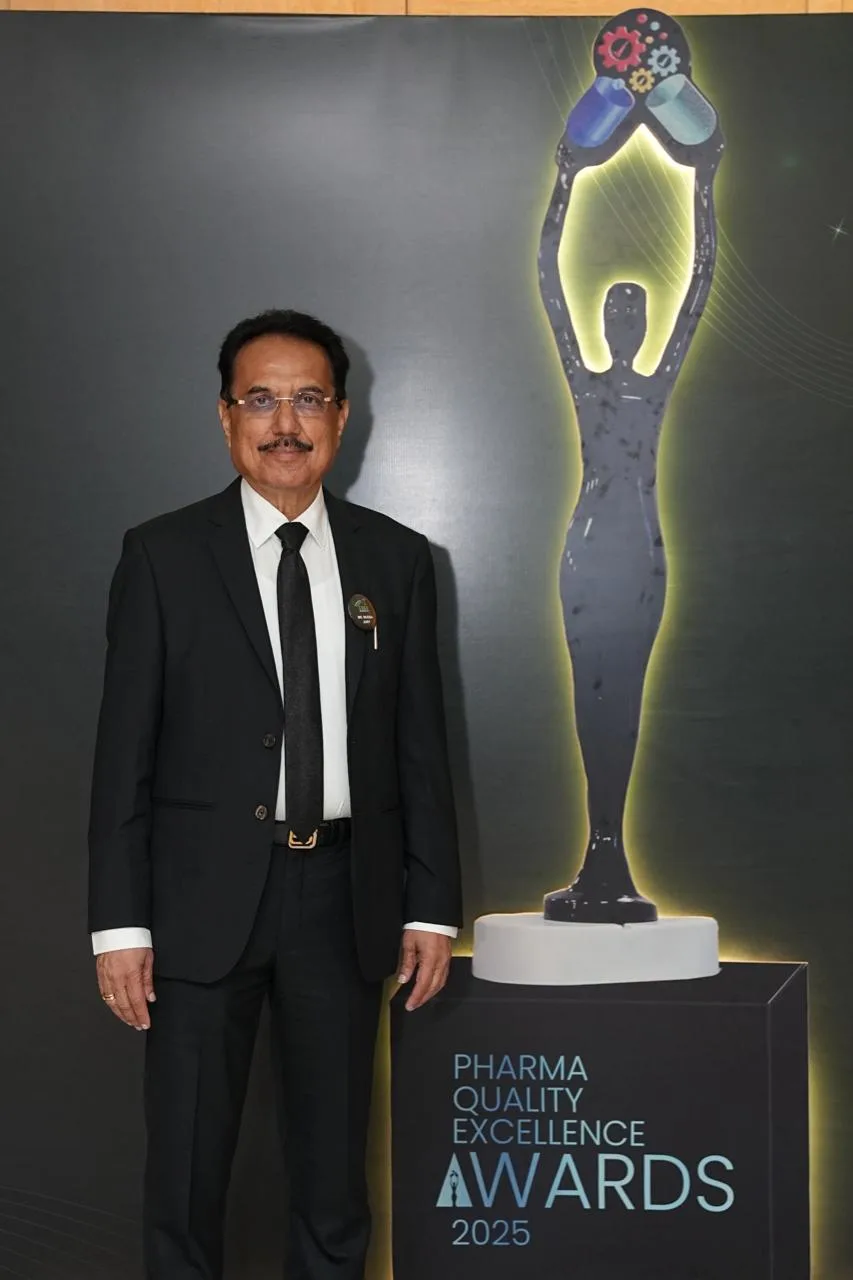
As our conversation drew to a close, one thing became clear: Mr. S. M. Mudda’s journey is not just about professional success, but about purpose, principles, and perspective.
Through his reflections on leadership, integrity, and the pursuit of excellence, he reminds us that true growth in pharma, and in life, begins with curiosity, discipline, and conscience.
Whether you’re a young professional finding your path or a seasoned leader navigating change, his words serve as a reminder that systems may build quality, but it’s character that sustains it.
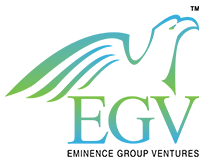
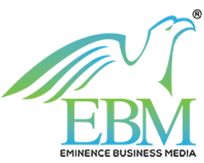
My Reflections on Mr. Mudda Sir’s Story
Reading your interview brought back a flood of memories, Sir. I joined the industry as a very junior B.Pharm graduate with less than two years of experience, and by destiny landed in Microlabs QA–Validation around the year 2000. We had a few upgrade projects going on at that time, and out of sheer curiosity I had started learning the basics of AutoCAD.
Just a few days before an audit, you needed an updated layout—and coincidentally I happened to be in your office. In my broken English and with a shaking voice, I mentioned that I could try updating the drawing. Without wasting a second, you turned your desktop towards me and said, “Grab a chair.” You marked the changes on paper, and I updated the layout.
That moment became the turning point of my career and my life. From that day, I somehow became one among your office team. At such an early stage in my career, you introduced me to GMP, facility design concepts, the purpose behind GMP, HVAC systems, and validation fundamentals, meetings with the vendours, exposure to international GMP audits etc..etc..etc..
The four years I had the privilege to work directly under your leadership completely changed my thought process and shaped who I am professionally. You gave me ISPE guides, ISO standards, and every morning I would hear instructions like, “Rajesh, let’s design a layout — 10 packing lines, 3 compression, granulation.” And then you would say, “We’ll discuss in the car,” meaning I had the privilege to travel with you and discuss GMP, layouts, and design philosophies when returning from Hosur to Blore in the evening.
There were many personal sacrifices—late evenings and long days—but those four years were the most transformative of my life. You always ensured I received credit and recognition for my contributions.
What a legend you are, Sir. Talking to you even today is energizing and inspiring. I remain forever grateful for the foundation you built in me.
Thank you so much for sharing such an impactful and heartfelt reflection. Stories like yours beautifully highlight the kind of leader Mr. Mudda is and the profound difference he continues to make in the lives of professionals across the industry. We truly appreciate you taking the time to share this inspiring journey.
Hi there, the whole thing is going well here and ofcourse every one is sharing facts, that’s really excellent, keep up writing.
Ahaa, its fastidious dialogue regarding this paragraph at this place at this blog, I have read all that, so now me also commenting at this place.
Hi, I check your blog daily. Your humoristic style is witty, keep up the good work!
Hello, this weekend is nice for me, as this moment i am reading this impressive educational post here at my home.
It’s very simple to find out any topic on web as compared to books, as I found this piece of writing at this website.
Hey there! This is my first visit to your blog! We are a team of volunteers and starting a new project in a community in the same niche. Your blog provided us valuable information to work on. You have done a marvellous job!
I am sure this paragraph has touched all the internet visitors, its really really good post on building up new website.
If some one wishes to be updated with newest technologies then he must be go to see this site and be up to date every day.
I am perpetually thought about this, thanks for posting.
This is a topic that’s close to my heart… Take care! Where are your contact details though?
Ahaa, its nice conversation about this article here at this webpage, I have read all that, so at this time me also commenting at this place.
Greetings! Very useful advice within this article! It is the little changes that will make the most significant changes. Thanks for sharing!
I wanted to thank you for this great read!! I definitely loved every little bit of it. I have got you book-marked to look at new stuff you